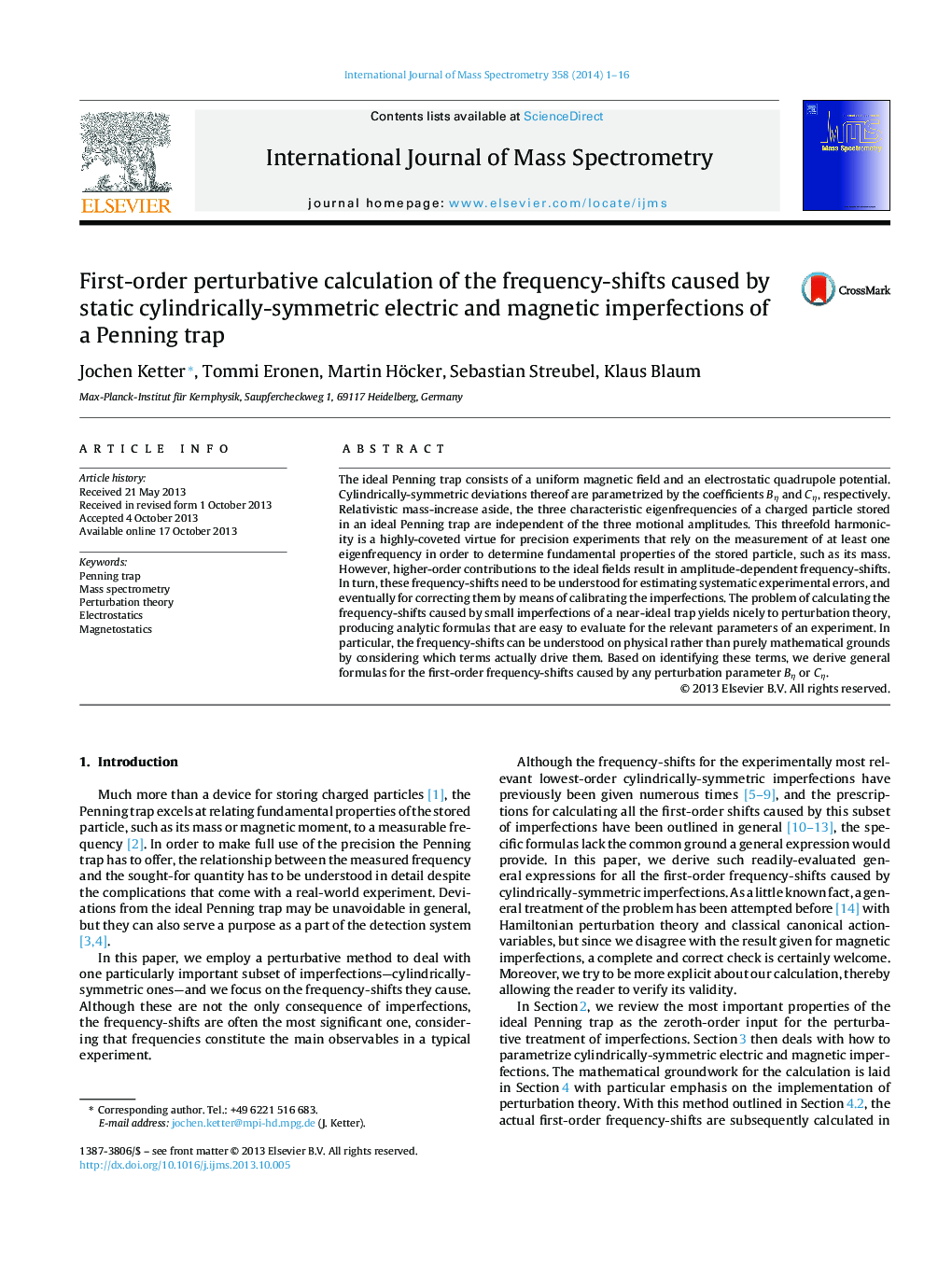| Article ID | Journal | Published Year | Pages | File Type |
|---|---|---|---|---|
| 1192487 | International Journal of Mass Spectrometry | 2014 | 16 Pages |
•We examine cylindrically-symmetric imperfections of a Penning trap.•We naturally parametrize these imperfections in cylindrical coordinates.•We show how to put perturbation theory on physical grounds.•We calculate the first-order frequency-shift caused by cylindrical imperfections.•We give a general formula for these first-order frequency-shifts.
The ideal Penning trap consists of a uniform magnetic field and an electrostatic quadrupole potential. Cylindrically-symmetric deviations thereof are parametrized by the coefficients Bη and Cη, respectively. Relativistic mass-increase aside, the three characteristic eigenfrequencies of a charged particle stored in an ideal Penning trap are independent of the three motional amplitudes. This threefold harmonicity is a highly-coveted virtue for precision experiments that rely on the measurement of at least one eigenfrequency in order to determine fundamental properties of the stored particle, such as its mass. However, higher-order contributions to the ideal fields result in amplitude-dependent frequency-shifts. In turn, these frequency-shifts need to be understood for estimating systematic experimental errors, and eventually for correcting them by means of calibrating the imperfections. The problem of calculating the frequency-shifts caused by small imperfections of a near-ideal trap yields nicely to perturbation theory, producing analytic formulas that are easy to evaluate for the relevant parameters of an experiment. In particular, the frequency-shifts can be understood on physical rather than purely mathematical grounds by considering which terms actually drive them. Based on identifying these terms, we derive general formulas for the first-order frequency-shifts caused by any perturbation parameter Bη or Cη.
Graphical abstractFigure optionsDownload full-size imageDownload high-quality image (180 K)Download as PowerPoint slide
